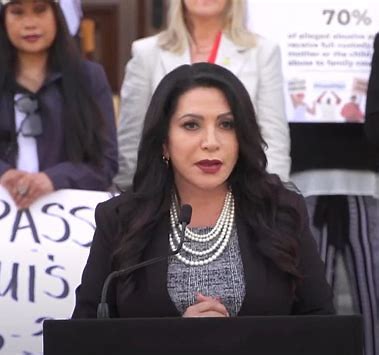Will a Family Court Judge Make a Kid Live With a Parent When They Don’t Get Along?
The short answer is yes. Separated parents in Family Court find that judges are very likely to make a child, even a teenager, live with a parent that child does not like. What parents need to do in that situation is complicated.
Increasingly, Family Court Judges are less concerned about a child’s, even a teenager’s, feeling about a parent after separation. Judges are also less concerned about whether a parent gets along with a child. They may give that consideration little weight when making a parenting order (formerly called a custody order before the 2021 changes the Family Laws). There has been a big change over what occurred in years in Family Court. Now parents can lose parenting cases in Family Court by suggesting that a child should not spend time with the other parent because that other parent cannot get along with that child.
Children resisting contact with a parent, or not getting along with a parent, after separation is one of the most complicated and difficult areas of Family Law.
Judges are concerned about why a child does not like a parent
Right now, judges are very concerned about, and often focused on, the idea of parental alienation. That is when one parent, either intentionally or unintentionally, does things to undermine, or destroy, the children’s relationship with the other parents. Parental alienation is a very complex topic that is summarized on this page. However, it is sufficient to say that it is a very controversial idea, with some very controversial research and even more controversial ideas about what to do about it.
There are some academic research and theories, which are not accepted by a lot of people, that say that children inherently love and want to spend time with both parents, no matter what has happened, and even in circumstances of abuse. The extension of that thinking is that the only thing that can make a child not want to spend time with a parent, or even have a bad relationship with a parent, is the deliberate interference of the other parent after separation. That means judges must try to fix parent-child relationship problems.
When deciding parenting cases, there are several factors that judges must consider when making parenting orders. Two of those factors relate to the ability of a parent to support the children’s relationship with the other parent. The children’s wishes are the only factor that a judge may consider. Additionally, the law puts caveats on whether a judge should consider the children’s wishes at all. Arguably, an effort to undermine a child’s relationship with the other parent is twice as important as the child’s wishes. However, judges say they weigh and balance each factor when making a decision.
Regardless, a parent undermining, or appearing to undermine, the children’s relationship with the other parent, is something that judges must seriously consider.
What Judges Might Do About Kids Fighting With a Parent
Judges who believe that one parent is undermining the children’s relationship with the other parent can make very intrusive orders. Based on some controversial social science research, judges often take the children away from their favoured parent and make the children live full-time with the parent with whom they don’t get along. Usually, those orders require the children to have minimal or no contact with their favourite parent. In addition, those orders frequently also require the children to participate in what the providers call “psychoeducational” sessions.
It is no longer the case that a child not getting along with a parent means that the child will not spend much time with that parent. For some judges, the opposite is true. It is a really risky strategy to tell a family court judge that a child should not have to spend time with the other parent because that parent and child do not get along.
The Dangers of Explaining Why There is a Bad Parent/Child Relationship
It is even dangerous to suggest limiting a parent-child relationship in situations where the child witnessed intimate partner violence or experienced child abuse. Judges often feel concerns about domestic violence are less important than allegations of parental alienation. One line of research suggests that parental alienation is both a more severe form of child abuse and domestic violence than physical and psychological violence. However, other research says that alienation allegations are an, often successful, strategy by perpetrators of domestic violence to divert the court’s attention away from how that violence has impacted the children.
No legislation that applies to Ontario includes “parental alienating behaviours” as a type of family violence. This was a deliberate recognition by both the Federal and Ontario governments that it is usual for children to have a strained relationship with a perpetrator of family violence.

In the United States, domestic violence laws have gone further. Federally, Kayden’s Law, and in California, Piqui’s Law, ban reintegration therapy and other “treatments” for parental alienation. The governments passed those laws after family courts ordered such programs to force children to live with their abusers.
In difficult parenting cases, especially high-conflict ones, it is critically important to speak with a good family lawyer with experience with these types of situations. That is because what can seem like the obvious solution can be the wrong one. Taking the wrong action can lead to shocking, sometimes horrendous consequences.
One study that looked at almost 2200 family court cases, in which there were domestic violence allegations, found the courts placed more than a quarter of the children with their alleged abusers. In those cases, the courts cited concerns that the alleged victim was alienating the children from the alleged abuser. Unless it occurs in the presence of impartial witnesses, family violence can be very difficult to prove in family court.
Carefully Choosing The Right Response Is Important
It is very difficult for separated parents to succeed in limiting contact between a child and another parent on the basis that they do not give along. To accomplish that a separated parent has the extremely difficult burden of showing that there is no parental alienation. The courts expect parents to work very hard to encourage the children to spend time with the other parent. That means not only being emotionally supportive of the relationship but, according to some court decisions, even using physical force to ensure a child goes with the other parent.
Letting a child decide whether to spend time with another parent is almost always a strategy that fails in family court. It creates stress and loyalty conflicts for a child who is not ready or feels pressure, to make a particular decision. Family Court judges invariably view parents who “let the child decide” as parents who coerce the child not to see the other parent, regardless of the circumstances.
A parent of children who resists spending time with their other parent after separation must get the assistance of experienced family lawyers, and usually other professionals, to navigate a minefield of problems. Doing the wrong things, or even the right things inadequately, can result in a family judge taking the children away and placing them with a parent they do not like. It is important to have competent professionals determine the cause of the parent-child conflict. Those professionals must also be able to convince a skeptical family court judge that the cause is not alienation. After identifying the cause of the difficulty, a parent must act quickly to remedy that cause. Any delay could result in the judge taking the children away and forcing the children to live with the other parent.
How to Get Help Now
Making parenting decisions after separation, especially in high-conflict separations, can be extremely difficult. Doing the wrong thing can have horrendous consequences. Before you make any big decisions after separation, read a copy of this $9.99 eBook on Ontario Family Law (paperback also available),
To get the best advice, specific to your situation, you should speak to a family lawyer. Certified Specialist in Family Law, John Schuman, is known for his concern for children in separation and divorce and has won many parenting cases. To contact John call 416-446-5080, email him, or fill out the form below. You can use the same form to comment on this page.


